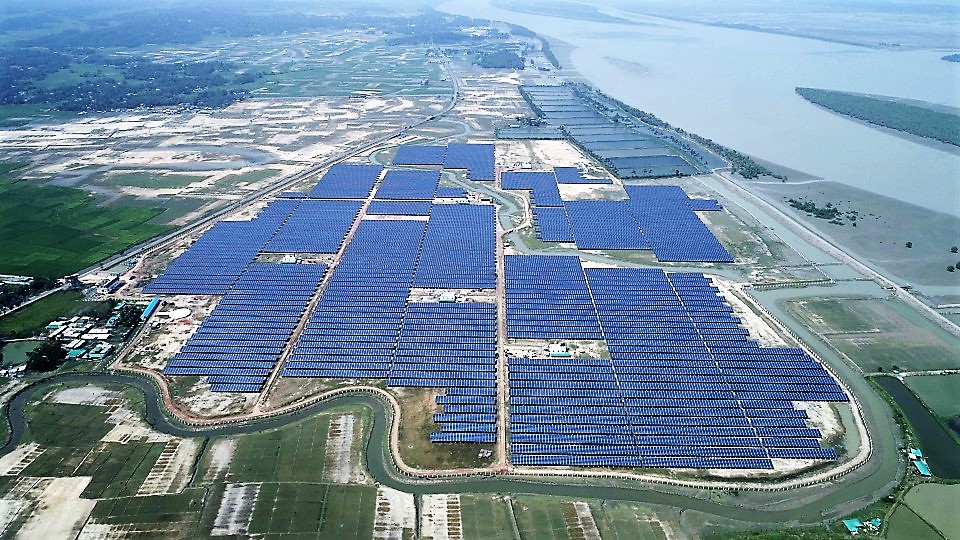A senior Bangladeshi politician has warned land shortages in the nation will continue to hold back solar power development until technological advances can reduce the physical footprint of PV projects.
Speaking at the signing ceremony for a planned 100 MW solar farm in Feni district, junior power minister Nasrul Hamid said the government was aware of the need to participate in the energy transition but added: “Technology needs to be invented which can help generate higher solar power [returns] using [less] land.”
Hamid added, however, it was time for Dhaka to consider the potential of rooftop solar, as well as hydrogen and wind and wave power, and the politician said funding would be available to conduct research into those technologies.
pv magazine May edition
The minister made the remarks at a ceremony organized to mark the signing of a memorandum of understanding between Japan's Marubeni Corporation and state-owned utility the Electricity Generation Company of Bangladesh (EGCB).
The partners plan to develop a near-$120 million, 100 MW solar plant on a 350-acre fallow land site in the Sonagazi sub-district of Feni. The location is part of 1,000 acres of fallow land acquired by the electric company as a planned solar project hub.
The Bangladeshi utility is already developing a World Bank-funded 50 MW project at the site and aims to install a further 100 MW of solar generation capacity nearby, in addition to the Marubeni facility, which will be owned by a 50-50 joint venture between the partners.
EGCB managing director Arun Kumar Saha told pv magazine provision of the site would form part of the utility's contribution to half of the project costs.
Saha said the electric company had fielded enquiries from 20 foreign developers interested in the 100 MW project after the utility had invited expressions of interest in 2018. He said Marubeni was selected after a thorough examination of the proposals submitted. The Japanese company claims to operate 12 GW of power plants in 19 countries.
Under the terms of the expression-of-interest call referred to, Marubeni would be responsible for the selection of an engineering, procurement and construction contractor, via competitive bidding; for land and infrastructure development; power evacuation planning; electricity generation; operation and maintenance of the project; and the sale of electricity.
The project is scheduled to be online by 2023 and Saha said Marubeni will conduct its own feasibility study on the site even though the electric company has already carried one out.
Bangladesh has around 496 MW of solar generation capacity as part of a 730 MW renewables fleet.
This content is protected by copyright and may not be reused. If you want to cooperate with us and would like to reuse some of our content, please contact: editors@pv-magazine.com.



2 comments
By submitting this form you agree to pv magazine using your data for the purposes of publishing your comment.
Your personal data will only be disclosed or otherwise transmitted to third parties for the purposes of spam filtering or if this is necessary for technical maintenance of the website. Any other transfer to third parties will not take place unless this is justified on the basis of applicable data protection regulations or if pv magazine is legally obliged to do so.
You may revoke this consent at any time with effect for the future, in which case your personal data will be deleted immediately. Otherwise, your data will be deleted if pv magazine has processed your request or the purpose of data storage is fulfilled.
Further information on data privacy can be found in our Data Protection Policy.